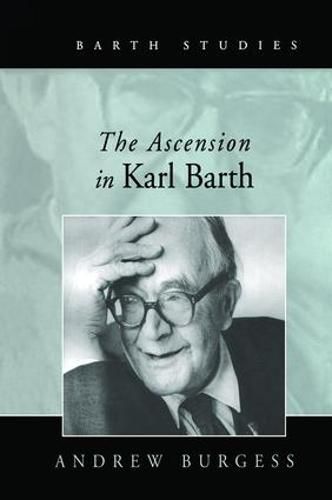Readings Newsletter
Become a Readings Member to make your shopping experience even easier.
Sign in or sign up for free!
You’re not far away from qualifying for FREE standard shipping within Australia
You’ve qualified for FREE standard shipping within Australia
The cart is loading…






This book explores the doctrine of ascension, and Barth’s ascension thought in particular. First, it examines the doctrine of Jesus Christ’s ascension into heaven, presenting a sustained discussion of Karl Barth’s approach to this doctrine and the significance of the doctrine within his theology as a whole. Secondly, through examining Barth’s ascension thought and dialoguing with three other theologians (Torrance, Farrow and Jenson), a clearer understanding of Barth and his theology is achieved. The treatment of issues related to Christ’s ascension across a broader (protestant) perspective increases the relevance and usefulness of this unique study. Andrew Burgess presents the doctrine of the ascension as an important and undervalued doctrine and encourages Christians to see how, like Barth, they might benefit in their ability to think coherently about the present age and about Jesus in relation to this age, enabling further thought about the work of the Holy Spirit, the church, and Christian ethics.
$9.00 standard shipping within Australia
FREE standard shipping within Australia for orders over $100.00
Express & International shipping calculated at checkout
This book explores the doctrine of ascension, and Barth’s ascension thought in particular. First, it examines the doctrine of Jesus Christ’s ascension into heaven, presenting a sustained discussion of Karl Barth’s approach to this doctrine and the significance of the doctrine within his theology as a whole. Secondly, through examining Barth’s ascension thought and dialoguing with three other theologians (Torrance, Farrow and Jenson), a clearer understanding of Barth and his theology is achieved. The treatment of issues related to Christ’s ascension across a broader (protestant) perspective increases the relevance and usefulness of this unique study. Andrew Burgess presents the doctrine of the ascension as an important and undervalued doctrine and encourages Christians to see how, like Barth, they might benefit in their ability to think coherently about the present age and about Jesus in relation to this age, enabling further thought about the work of the Holy Spirit, the church, and Christian ethics.